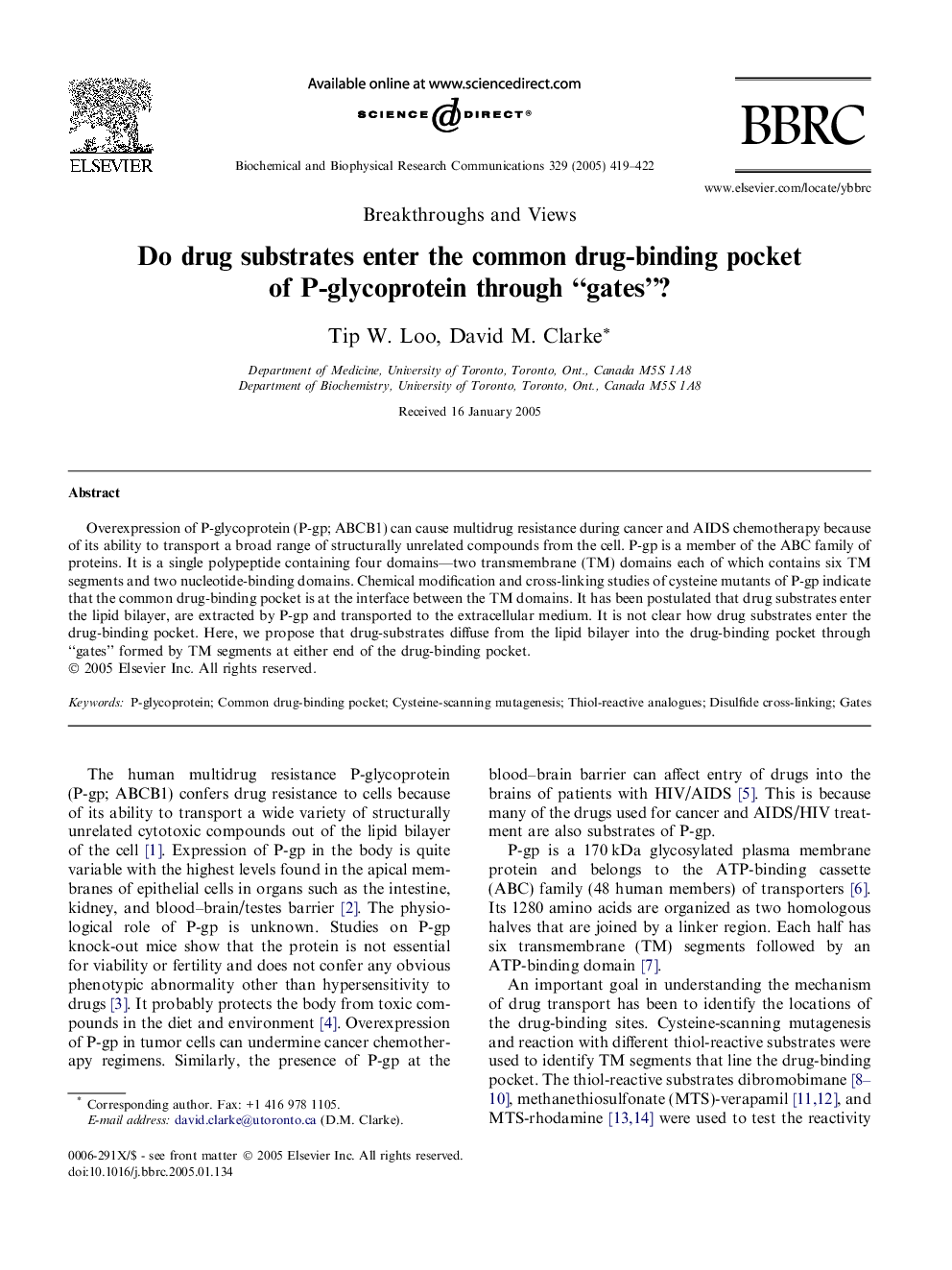| Article ID | Journal | Published Year | Pages | File Type |
|---|---|---|---|---|
| 10770694 | Biochemical and Biophysical Research Communications | 2005 | 4 Pages |
Abstract
Overexpression of P-glycoprotein (P-gp; ABCB1) can cause multidrug resistance during cancer and AIDS chemotherapy because of its ability to transport a broad range of structurally unrelated compounds from the cell. P-gp is a member of the ABC family of proteins. It is a single polypeptide containing four domains-two transmembrane (TM) domains each of which contains six TM segments and two nucleotide-binding domains. Chemical modification and cross-linking studies of cysteine mutants of P-gp indicate that the common drug-binding pocket is at the interface between the TM domains. It has been postulated that drug substrates enter the lipid bilayer, are extracted by P-gp and transported to the extracellular medium. It is not clear how drug substrates enter the drug-binding pocket. Here, we propose that drug-substrates diffuse from the lipid bilayer into the drug-binding pocket through “gates” formed by TM segments at either end of the drug-binding pocket.
Related Topics
Life Sciences
Biochemistry, Genetics and Molecular Biology
Biochemistry
Authors
Tip W. Loo, David M. Clarke,
